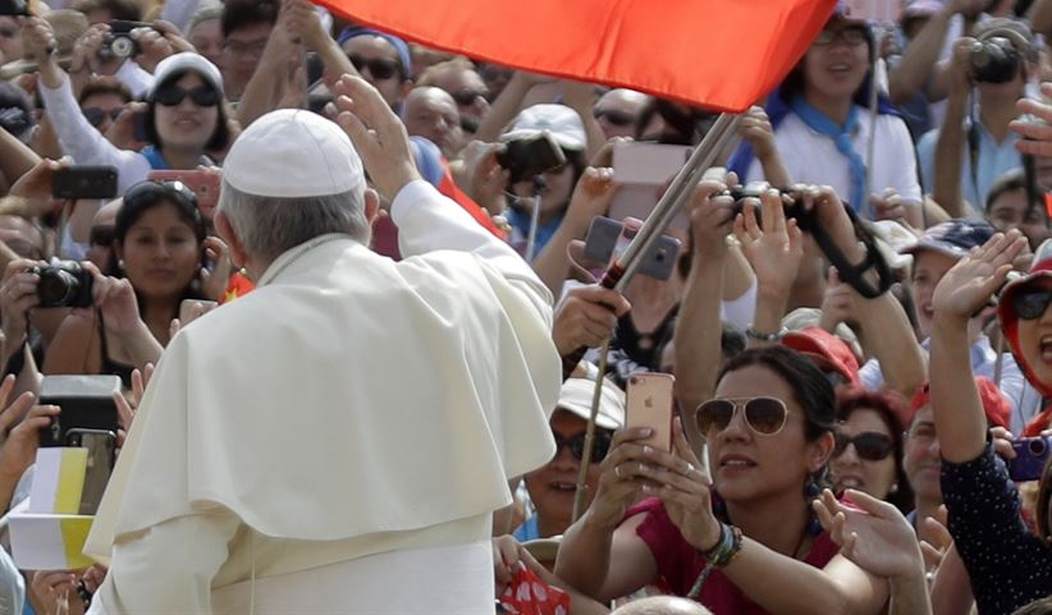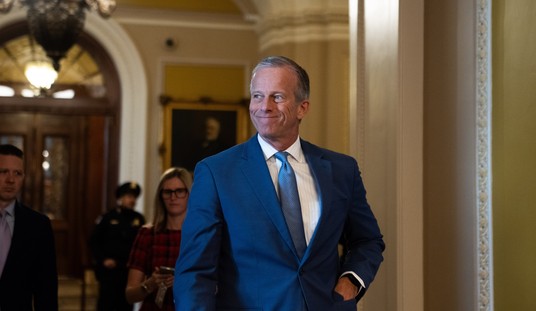Given the recent fight over whether U.S. refugee detention centers are in fact "concentration camps," the Trump administration might want to borrow a page from the Chinese and simply call them "vocational skills education training centers." That way, no one would really care at all.
That's what the Chinese call their gulag archipelago of internment and re-education camps in Xinjiang province, where an estimated million ethnic Uighurs and other Turkic people are being held. The Uighurs are a traditionally Muslim minority, and Beijing says they pose a major threat because of Islamic terrorism. The reality is that the Chinese fear separatist movements, Islamic or otherwise, in a resource-rich region three times the size of France.
As a result, the Chinese are pursuing the largest attempt at cultural annihilation of the 21st century. Religion is heavily regulated throughout China, but it is brutally policed in Xinjiang. According to an analysis of satellite imagery by Agence France-Presse, "30 religious sites were completely demolished while six had their domes and corner spires removed." Ancient cemeteries are being erased, turned into parking lots. In the southern city of Kashgar, once a jewel of the Silk Road -- and closer to Baghdad than to Beijing -- morning calls to prayer have been silenced.
The evil deeds in Xinjiang are merely the most egregious examples of what the Economist has called "apartheid with Chinese characteristics" and what I think of as a high-tech Asian version of Jim Crow.
What is both intriguing and infuriating to me is that American politicians refuse to talk about any of this. After all, we are in the midst of a trade war with China. Whatever the merits of this economic confrontation may or may not be, you would think the nature of the Chinese regime itself would play a larger part in debate. The nature of the South African regime was the entire reason for the sanctions and boycotts pushed by progressives and Democrats in the 1980s. The nature of the Soviet Union was the rhetorical centerpiece of the economic warfare pushed by Republicans during the Cold War. Today, the repression of the mullahs and the export of terrorism aren't the main driver of sanctions against Iran -- that would be the country's nuclear program -- but they are a major part of the rhetoric accompanying such policies.
Recommended
But among both Democrats and Republicans, Chinese authoritarianism often goes unmentioned, save perhaps as an afterthought. Countless conservatives, particularly of the new nationalist bent, want to take a hard line with China because they make widgets at a lower price than us or because they rip off Hollywood. The fact that the Chinese government has put a million Muslims in re-education camps and persecuted Christians, too, is rarely part of the conversation.
Rhetorically, President Trump has been far harsher on Canada and Mexico than he has been on China. He refused to offer even pro-forma support for the protesters in Hong Kong beyond saying the protests were having a "big impact."
One needn't be blindly moralistic about all of this. China is big, powerful and dangerous. But so was the Soviet Union, and we still managed to tell the truth about it. China is also more integrated into the global economy than the USSR ever was, and that brings important considerations as well.
The ongoing confrontation with China highlights the moral blind spot of economic nationalism -- on the right and the left. The new fad of nationalism on the right has brought many conservatives into agreement with the left on non-interventionism and realism. The Trump administration as well as Democratic supporters of a tough trade policy with China (such as Sen. Chuck Schumer) have made it clear that all we expect of Beijing is more cooperation on trade, intellectual property and currency policies. Fix that stuff, our messaging signals, and everything you do to your own people is your business.
President Trump's speech in Normandy earlier this month was rightly hailed as one of his best. It was particularly popular among the nationalists because World War II understandably looms large in the romance about American moral and military might. Trump hailed the veterans of D-Day who "threw open the gates of Nazi concentration camps to liberate Jews." Meanwhile, today's nationalists are happy to demonize a China that bootlegs Mickey Mouse but are silent about the very same China that rounds up internal enemies and puts them in concentration camps.























Join the conversation as a VIP Member